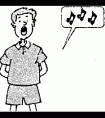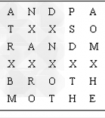画一画,涂一涂并回答问题。1. Colourthedog'searsbrown.Doesadoghavefur? _____________________. Canadogfly?_____________________. Whatcanadogdo?____________-四年级英语
学习用品
pen pencil pencil-case ruler book bag comic book post card newspaper schoolbag eraser crayon sharpener story-book notebook magazine
人体
foot head face hair nose mouth eye ear arm finger leg tail
动物
cat dog pig duck rabbit horse elephant ant kangaroo monkey fish bird panda bear lion tiger sheep goat cow donkey
人物
friend boy girl mother father sister brother uncle man woman Mr Miss lady mom mother dad father parents
grandparents grandpa grandma aunt cousin son classmate principal university student pen pal pal people
职业
teacher student doctor nurse driver farmer singer writer actor actress artist TV reporter engineer
accountant policeman salesperson cleaner baseball player assistant policeman
颜色
red blue yellow green white black pink purple orange brown]
食品
rice bread beef milk water egg fish tofu cake hot dog hamburger noodles meat
chicken pork mutton vegetable soup ice-cream Coke juice tea coffee (breakfast lunch dinner)
水果,蔬菜
apple banana pear orange watermelon grape eggplant green beans tomato potato peach cucumber strawberry onion carrot cabbage
衣服
jacket shirt T-shirt skirt dress jeans pants socks shoes sweater coat shorts sneakers slippers sandals boots hat
交通工具
bike bus train boat ship car taxi yacht taxi jeep van plane subway motor cycle
杂物
window door desk chair computer board fan light teacher's desk picture wall floor curtain trash bin closet mirror end table
football present lamp phone sofa shelf fridge table air-conditioner photo plate knife fork spoon ball kite box violin e-card e-mail traffic light money medicine
地点
home room bedroom bathroom living room kitchen classroom school park library post office hospital cinema bookstore
farm zoo garden study playground canteen teacher's office gym washroom art room company factory fruit stand pet shop nature park theme park bank village city
国家
China/PRC America/USA England Canada/CAN
天气
cold warm cool snowy sunny hot rainy windy cloudy weather reporter
景物
river lake stream forest path raod house bridge building rain cloud sun mountain sky
植物
flower grass tree seed sprout plant leaf
星期
day Monday Tuesday Wednesday Thursday Friday Saturday Sunday weekend
月份
month January February March April May June July August September October November December year
季节
spring summer fall(autumn) winter
方位
south north east west left right
患病
have a fever hurt have a cold have toothache have a headache have a sore throat
数词
One two three four five six seven eight nine ten eleven twelve thirteen fourteen fifteen sixteen seventeen eighteen nineteen
twenty thirty forty fifty sixty seventy eighty ninety first second third fourth fifth eighth ninth twelfth twentieth
形容词
big small long tall short young old strong thin active quiet nice kind strict smart funny tasty sweet salty sour fresh favourite
clean tired excited angry happy bored sad fine great heavy new fat happy right little lovely beautiful colourful pretty cheap expensive sick better
介词
in on under near behind next to over in front to from to for
代词
I me my we us our you your he him his she her it its they them their
动词
Play swim skate fly jump walk run climb fight swing eat like have turn buy take live teach go study learn sing dance row do homework watch TV read books cook the meals water the flowers sweep the floor clean the bedroom make the bed set the table wash the clothes do the dishes use a computer do morning exercises eat breakfast eat dinner go to school have English class play sports get up climb mountains go shopping play the piano visit grandparents go hiking fly kites make a snowman plant trees draw pictures cook dinner read a book answer the phone listen to music clean the room write a letter write an e-mail drink water take pictures watch insects pick up leaves do an experiment catch butterflies count insects collect insect collect leaves write a report play chess have a picnic get to ride a bike play the violin make kites collect stamps meet welcome thank work look help pass show use clean open close stop wait drive send feel become think wear put on go home go to bed play computer games do housework empty the trash put away the clothes get off(on) take a trip go on a trip read a magazine go to the cinema
疑问词
what(什么) what colour(什么颜色) what time(几点)
what day(星期几) how(怎样)how old(年龄多大,几岁)
how many(多少) how much (多少钱) how tall (多高)
how heavy(多重) how long(多长) how big(多大) how large(面积多大) who(谁) when(什么时候)
whose (谁的) where(在哪里) why(为什么)
which(哪一个)
be动词
am is are was were
助动词:do does did
情态动词
can should would will
考点名称:一般疑问句
- 一般疑问句:
是疑问句的一种。它是以be动词,have或助动词、情态动词开头,用yes(是)或no(否)来回答的句子。
其结构是:系动词be/助动词/情态动词+主语+其他成分
一般疑问句的肯定形式为:
助动词+主语(+实义动词)。肯定答语用“yes+可定结构”。
一般疑问句的否定形式为:
助动词构成的缩写否定词+主语(+实义动词)。否定答语用“no+否定结构”。
例:
— Do you like this story-book? 你喜欢这本故事书吗?
— Yes, I do. 喜欢。/ No, I don’t. 不喜欢。
— Is he a student? 他是一名学生吗?
— Yes, he is. 是,他是。/ No, he isn’t. 不,他不是。 一般疑问句的改写:
一、含有be动词的一般疑问句,通常把be动词调到句首。例如:
陈述句:They are in the swimming pool.
一般疑问句:Are they in the swimming pool?
注意:一般疑问句句末要用“?”。
二、含有情态动词的一般疑问句(can, may...),把情态动词调到句首。例如:
陈述句:He can drive a car.
一般疑问句: Can he drive a car?
三、含有have的一般疑问句,have译为“有”。一般疑问句式有两种形式:
1.把have/has调到句首。例如:
陈述句:Tommy has a computer.
一般疑问句:Has Tommy/he a computer?
2.加助动词do/does,第三人称单数用does,其他人称用do。其句型为:Do/Does + 主语 + have...?
例如上句可变为: Does Tommy have a computer?四、一般动词的一般疑问句,也要借助助动词do/does,第三人称单数用does,其余人称用do。
其句型为:Do/Does + 主语 + 动词原形+其它?
陈述句:Amy speaks English.
一般疑问句:Does Amy speak English?一般疑问句的回答:
首先要有人称的改变。当主语为名词时,在答语中要改成其相应的代词。
另外,答语有两种,肯定的回答(用yes)和否定的回答(用no),否定式常用缩写形式。
现在还是让我们分句型一一说明。一、一般疑问句含be动词时,用be动词回答,句末用句号。例如:
-Is Mary your sister?
-Yes, she is. / No, she isn’t.(缩写)二、一般疑问句含有情态动词(can, may, should等)时,用情态动词回答。例如:
-May I come in?
-Yes, you may. / No, you can’t.三、一般疑问句含有have(译为“有”)时,有两种回答方式。
1.直接用have/has回答。
例如:
-Have they any pictures?
-Yes, they have. / No, they haven’t.
2.用助动词do/does回答。
例如:
-Does Millie smoke?
-Yes, she does. / No, she doesn’t.四、一般动词的一般疑问句回答时也用助动词。
例如:
-Do the workers live in London?
-Yes, they do. / No, they don’t.
考点名称:特殊疑问句
- 特殊疑问句:
以特殊疑问词开头,对句中某一成分提问的句子叫特殊疑问句。
常用的疑问词有:what、who、whose、which、when、where、how、why等。
特殊疑问句往往是就其中的某一成分,进行提问,而且根据情况直接回答,不能用yes或no简单回答。
- 最新内容
- 相关内容
- 网友推荐
- 图文推荐
| [家长教育] 孩子为什么会和父母感情疏离? (2019-07-14) |
| [教师分享] 给远方姐姐的一封信 (2018-11-07) |
| [教师分享] 伸缩门 (2018-11-07) |
| [教师分享] 回家乡 (2018-11-07) |
| [教师分享] 是风味也是人间 (2018-11-07) |
| [教师分享] 一句格言的启示 (2018-11-07) |
| [教师分享] 无规矩不成方圆 (2018-11-07) |
| [教师分享] 第十届全国教育名家论坛有感(二) (2018-11-07) |
| [教师分享] 贪玩的小狗 (2018-11-07) |
| [教师分享] 未命名文章 (2018-11-07) |

![读句子,选出正确的图。Whatabigwatermelon![ ]A.B.-四年级英语](http://www.00-edu.com/d/file/ks/4/1/7/2019-08-11/small4a305321f43da5b832321508021a7edb1565477037.gif)


![根据图片,选择正确答案。1. Tom sends nine postcards to his _____________ .[ ]A. brotherB. motherC. father2. Where do I put the _____________ ?[ ]A. stamp-五年级英语](http://www.00-edu.com/d/file/ks/4/1/7/2019-08-11/smallb78172089d6038aa813d3891109792701565492155.gif)

